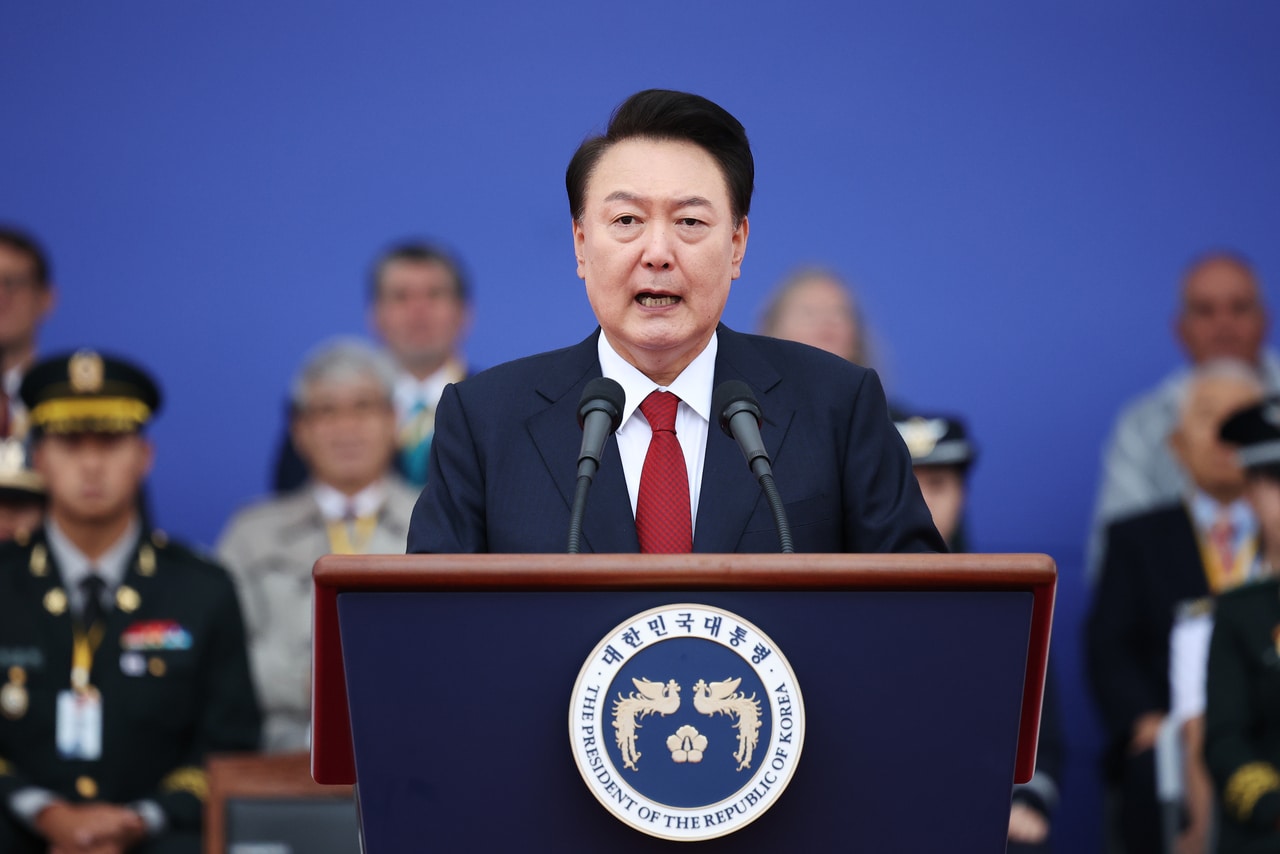A Seoul court on Tuesday approved investigative authorities’ request for an arrest warrant for South Korean President Yoon Suk Yeol. But questions still linger as to whether it would be possible to execute the arrest warrant, with the sitting president under the protection of the Secret Service.
The Presidential Security Service blocked police search and seizure attempts at the presidential office and the president’s residence in the past week, reiterating the Criminal Procedure Act that states that “places requiring military secrecy cannot be subject to seizure or search.”
Concerns have arisen that executing the arrest warrant would likely also encounter similar difficulties.
READ: S. Korea court issues arrest warrant for impeached president Yoon
As arrest warrants in Korea must be served in person by law enforcement officials executing the arrest before apprehending the suspect under the law, difficulties in executing the warrant are expected to arise if the Presidential Security Service refuses to comply with authorities.
Although rare, there have been instances in the past where investigative agencies like the Corruption Investigation Office for High-ranking Officials were unable to successfully execute an arrest warrant.
In 2004, former Democratic Party leader Han Hwa-gab nearly faced detention on suspicion of receiving around 1 billion won — roughly $900,000 at the time — in illegal political funds. However, after around 200 lawmakers blocked the entrance to party headquarters, the warrant could not be exercised, leading to his indictment without detention instead.
READ: S. Korean leader’s legal team says Yoon ‘did not commit insurrection’
Regarding this matter, the CIO has asserted in the past that claims of “official secrecy” cannot be used to obstruct the execution of an arrest warrant.
During a parliamentary session of the National Assembly’s Legislation and Judiciary Committee on Dec. 16, CIO Chief Prosecutor Oh Dong-woon stated that an official document under the CIO chief’s name would be sent to the Presidential Security Service, warning that “charges such as obstructing the execution of special official duties may apply” if the Security Service continues to block law enforcement from conducting further investigations.
Following Tuesday’s decision of the court, a Presidential Security Service official was quoted telling the press that “security measures will be carried out in accordance with proper procedures regarding the execution of the warrant.”
Rep. Kweon Seong-dong, acting chair of the People Power Party, criticized the court’s decision, labeling it as “inappropriate.”
“It would be more appropriate to coordinate opinions further and summon the sitting president instead of resorting to extraordinary measures such as an arrest warrant to detain the president,” Kweon was quoted telling the press Tuesday.
Floor Leader Rep. Park Chan-dae of the Democratic Party of Korea urged the ruling party to cooperate, saying it should “stop shielding the ringleader of the insurrection” and “actively cooperate in resolving the national emergency.”
With this being the first time in constitutional history where a sitting president faces possible arrest, it remains unclear to what extent the Presidential Security Service will cooperate with authorities in carrying out the warrant and what measures the CIO will take if the Security Service refuses to cooperate.
As Yoon’s legal representatives were repeatedly quoted as saying that the CIO’s arrest warrant is “unlawful,” concerns about unforeseen incidents have also been raised — such as clashes between the CIO and the president’s supporters — during the potential execution of the warrant.
The CIO planned to attempt to execute the warrant as early as Tuesday. Once Yoon is taken into custody for questioning, under the Criminal Procedure Act the CIO could formally detain Yoon within 48 hours.


